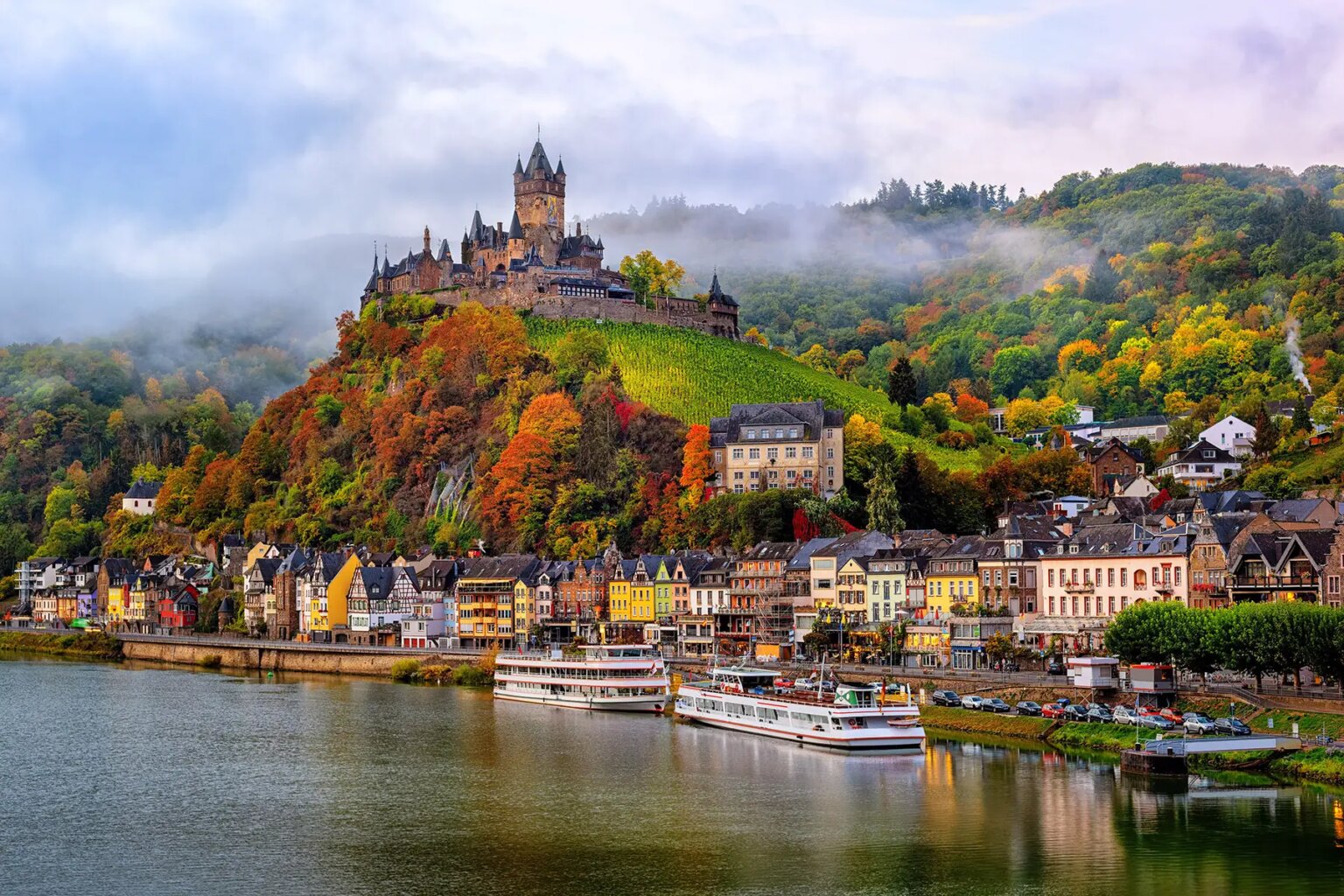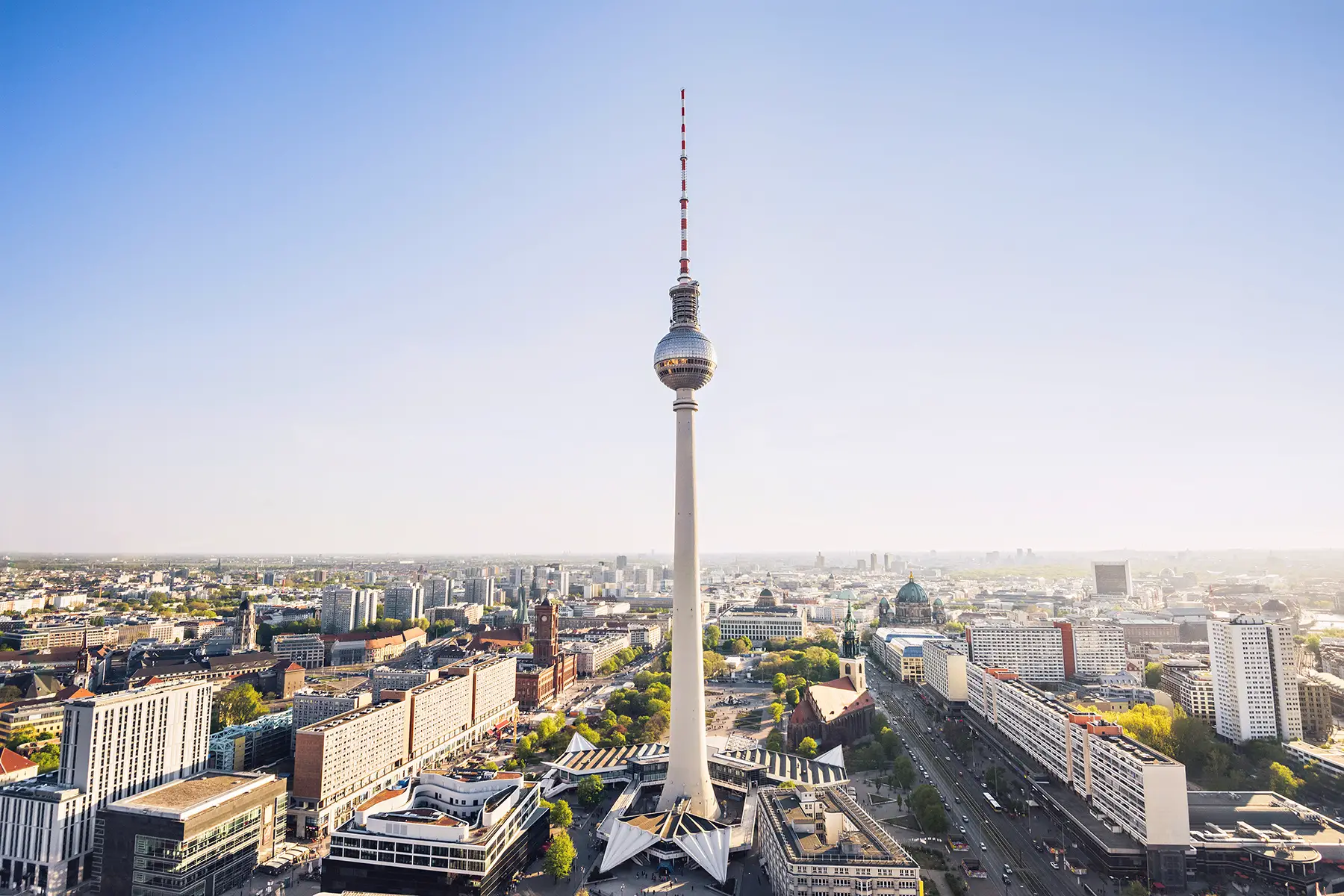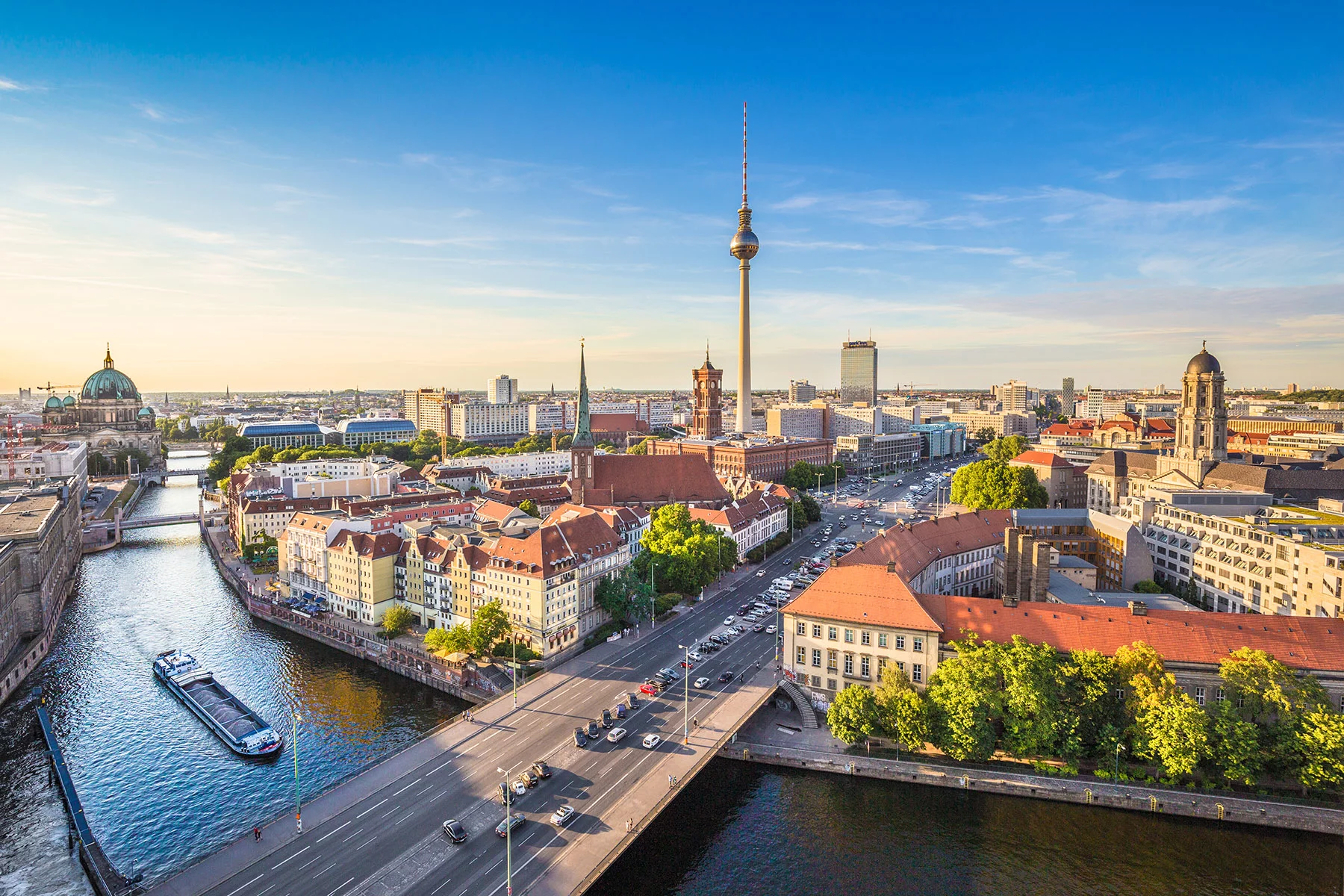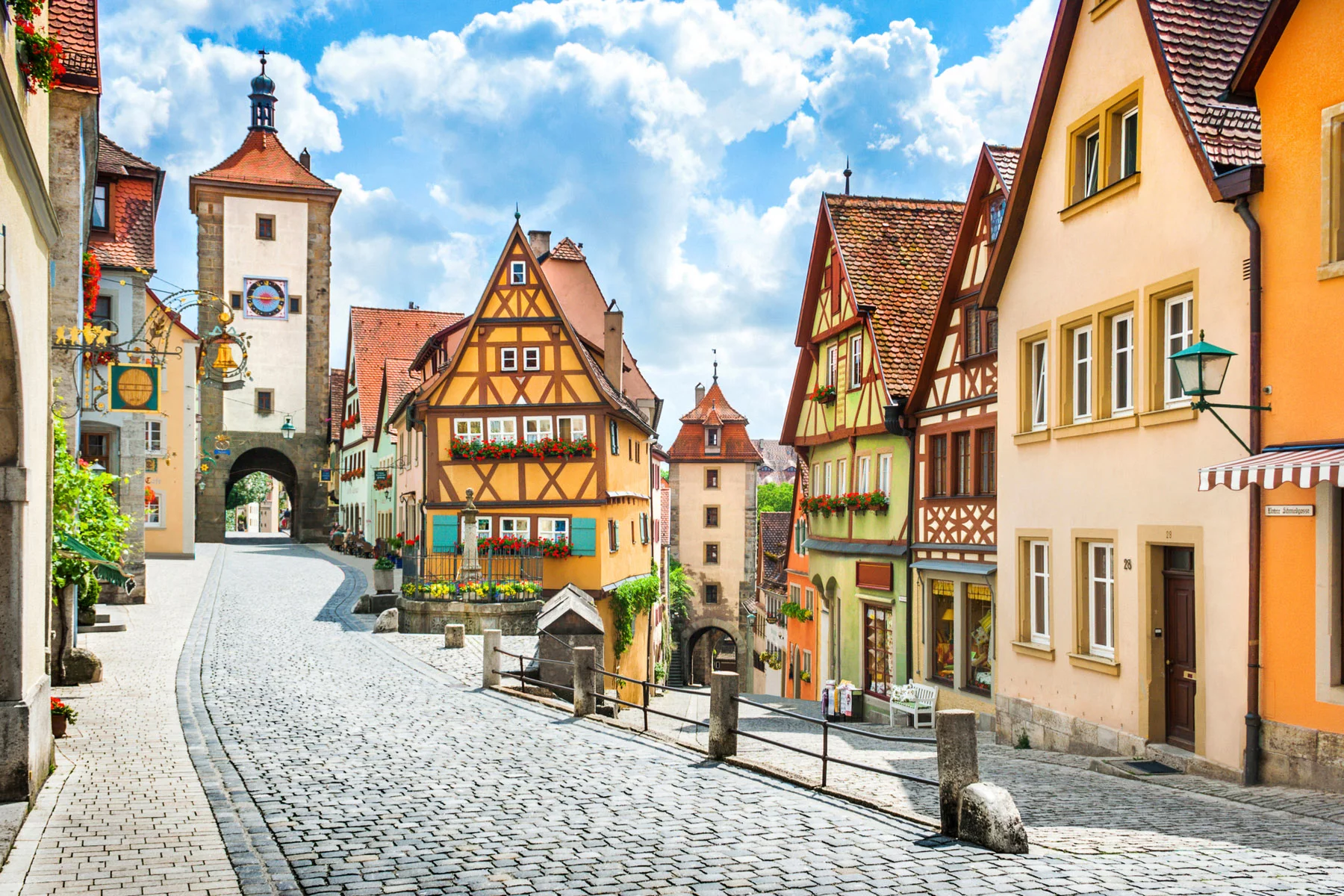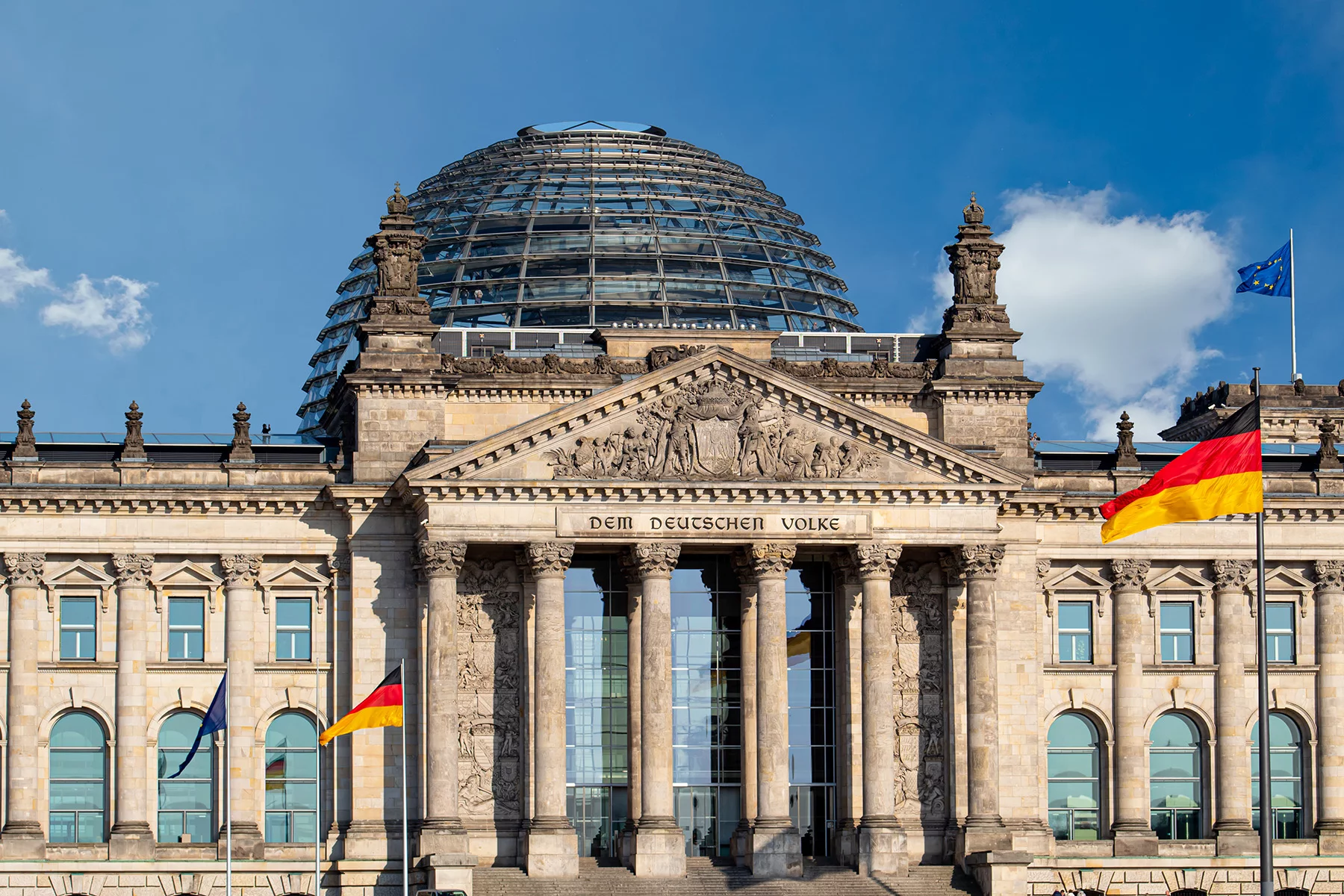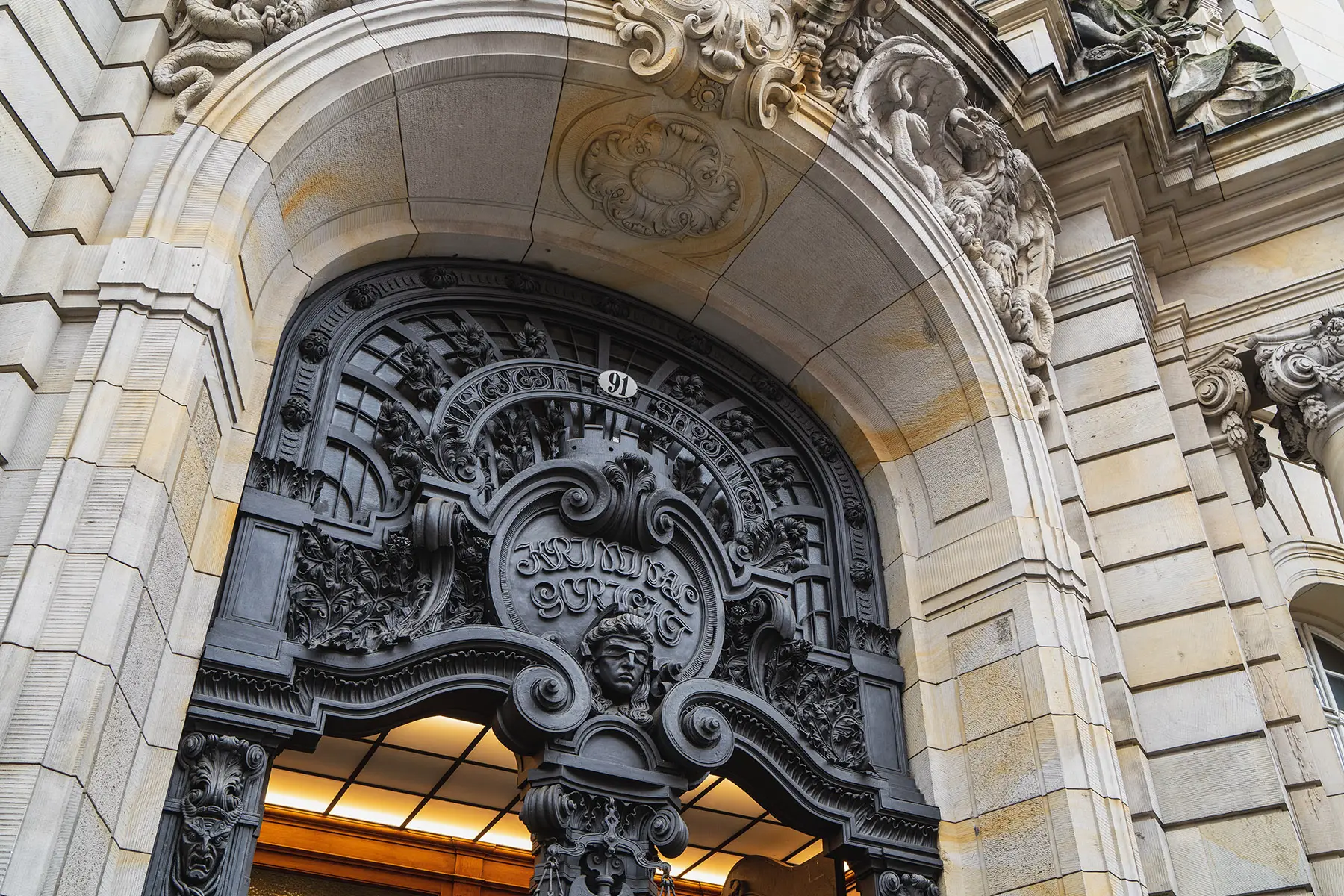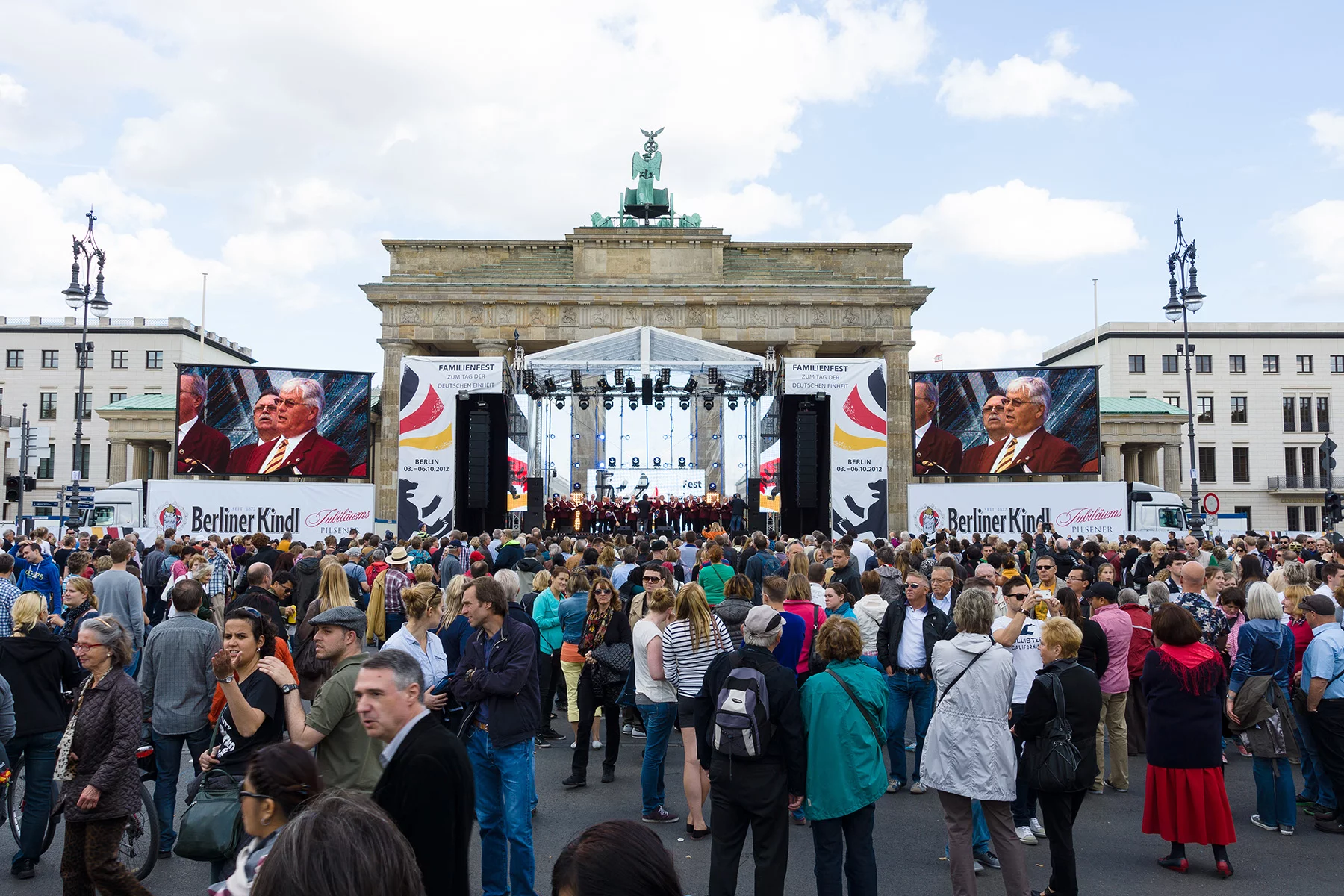Germany occupies an outsize place on the global stage. That’s not just for its economic heft as one of the world’s largest countries by GDP. The country also has a rich tradition of art and philosophy that has shaped Western culture for centuries. Combined with its natural beauty, comprehensive social security, and ample job opportunities, there’s reason enough to consider moving to Germany.
This article about living as an expat in Germany offers an overview of everything you need to know. Topics covered here include:
- Living in Germany
- Quality of life in Germany
- Geography of Germany
- Main cities in Germany
- Germany: facts and figures
- Key historical dates
- E conomy and living standards in Germany
- People and society in Germany
- German lifestyle and culture
- Food and drink in Germany
- Politics, government, and administration in Germany
- Rights and freedoms in Germany
- Crime and policing in Germany
- H ealth, welfare, and social security in Germany
- Education in Germany
- Work and business in Germany
- Environment and climate in Germany
- Great places to visit in Germany
- Public holidays in Germany
- Germans: myth-busting
- Useful resources
Sirelo
It's no secret that moving abroad can be stressful. Sirelo's team of removal advisers is here to help. They provide five free quotes from international shipping companies so you can find the best options at the best prices. Take the stress out of your relocation to Germany with Sirelo.
Living in Germany
What does Germany offer expats? The pros include a strong economy, great healthcare, and a fantastic work-life balance. If you stay long enough, the German passport is one of the world’s strongest.
The cons? You’ll need to learn German. Although the country ranks highly at 10th on the 2022 English Proficiency Index, you’ll be at a disadvantage if you don’t try to get to grips with the German language.
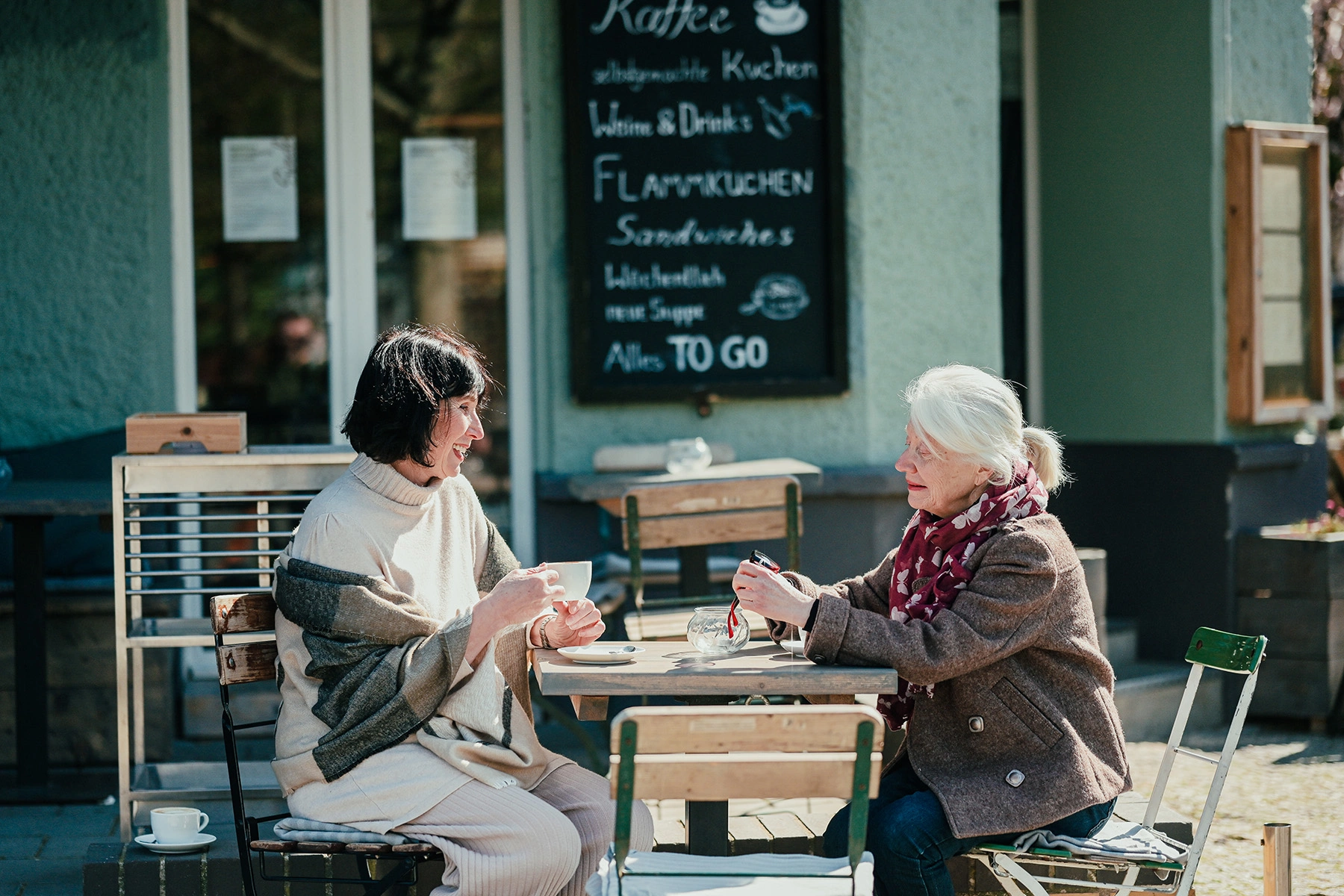
But enough people seem perfectly willing to put up with infinitely compound words and juggling the four definite articles. Germany is home to 13.4 million foreign residents, just over 16% of the population.
Germany ranks at number 28 on the 2021 HSBC Expat Explorer league table. This places countries according to current quality of life as well as future outlook and aspirations.
Quality of life in Germany
Germany scores highly for life satisfaction, safety, and work-life balance on the Organization for Cooperation and Development (OECD) Better Life Index. Its lowest scores are income, community, and civic engagement.
When it comes to expats, Germany rates as the toughest country to handle the basics of settling into a new country on the 2022 Expat Insider Survey. This is largely down to the aforementioned language problems, difficulties with housing, and lack of services available online. On the plus side, the country is good for jobs, security, sustainability, and infrastructure.
Nonetheless, if you’re looking for a new passport, it might be worth putting up with Teutonic intractability and idiosyncrasies. The German passport places equal second in the world on the 2022 Global Passport Index. To do this, however, you’ll need to meet the requirements for German citizenship.
Geography of Germany
Germany is Europe’s seventh-largest country with an area of 357,588 km2.
It shares its borders with nine other nations. The Netherlands, Belgium, and Luxembourg are its western neighbors. Denmark shares a land border in the north. Then, to its east lie Poland and Czechia. Switzerland and Austria sit to Germany’s south, and France on the southwest. Finally, Germany has sea borders with Sweden in the north and the United Kingdom in the northwest.
Since Brexit, the Bavarian hamlet of Gadheim has been determined as the new geographical midpoint of the European Union.
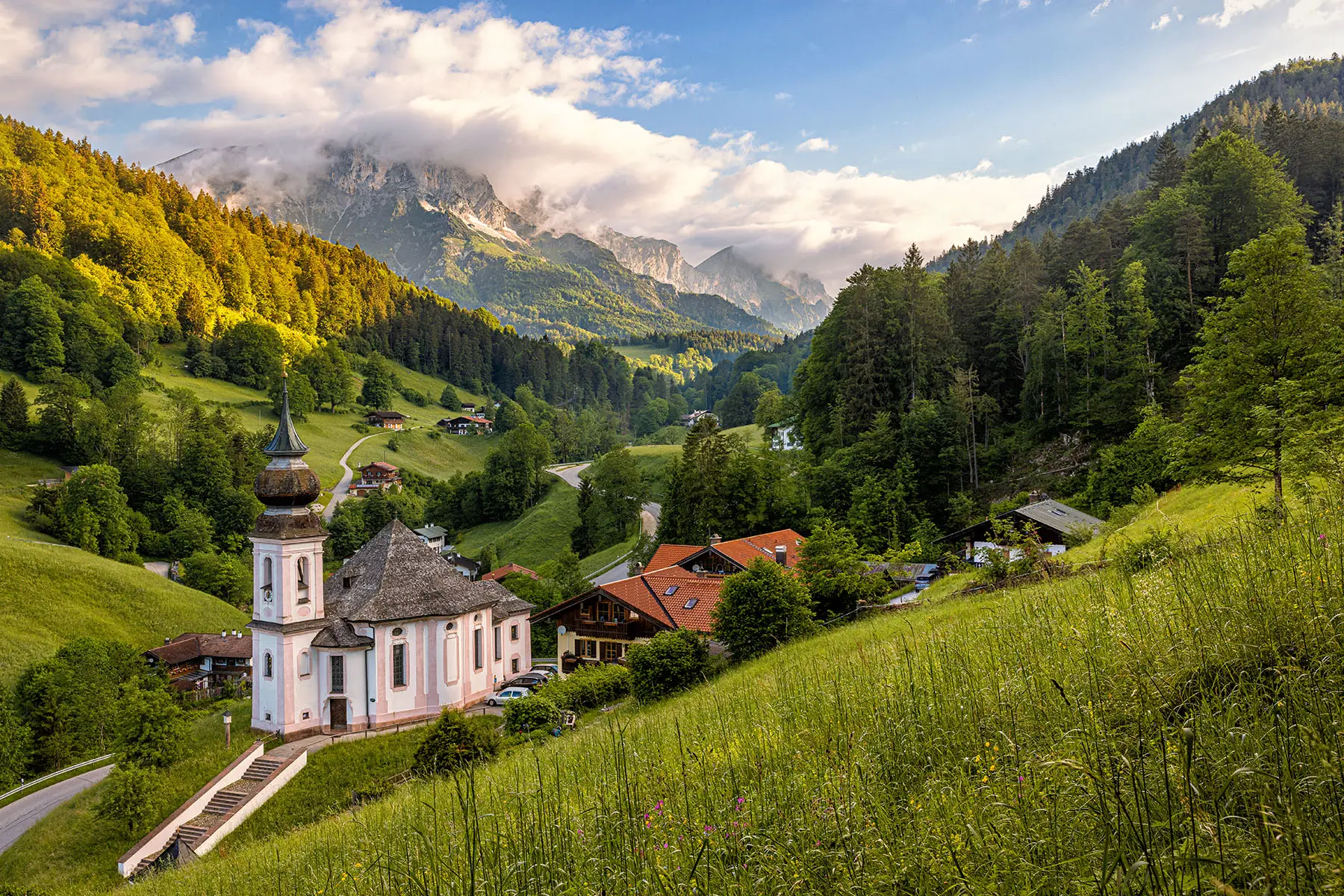
With a variety of landscapes spanning the continent’s main physical divisions, you’re never far away from a change of scenery. There’s excellent skiing to be had in Zugspitze, Germany’s highest point at 2,962 meters in the Alps. Forests cover about a third of the country, with spas and trekking available at nature resorts across the nation. Cycling routes cleave through marshy flatlands in the north, home to the lowest point, Neuendorf-Sachsenbande, 3.5 meters below sea level. Meanwhile, the continent’s major rivers – including the Rhine, Elbe, Mosel, and Danube – offer boating, wine-tasting, and tours of historic castles and urban centers.
The country’s fantastic roads – and high-speed Autobahn – mean that different experiences are accessible within a single day.
Regions of Germany
Sixteen partly federated states constitute the German republic. Each has its own character.
Bavaria (Bayern), home to the expat havens of Munich (München) and Nuremberg (Nürnberg), is the largest. Baden-Württemberg, whose state capital is the automotive center of Stuttgart, is the richest. The most populous state is North Rhine-Westphalia (Nordrhein-Westfalen), home to Cologne (Köln), Bonn, and Düsseldorf. Expats in banking and finance may find themselves working and living in Frankfurt, in Hessen. The artsy national capital, Berlin, is one of three city states, alongside Hamburg and Bremen.
Main cities in Germany
Berlin
Sprawling, laidback, party-friendly Berlin is awash with cultural experiences. Germany’s major museums and arts institutions are based here, but the city also boasts a hip, international appeal that’s harder to find in other European capitals. Cheap rent and a wide availability of studio space in the years following reunification have played their part, as has the city’s carefree, live-and-let-live spirit.
Expats will find jobs in the creative industries, healthcare, energy, and higher education, and within Berlin’s start-up ecosystem.
Munich (München)
Perhaps best known for Oktoberfest, Munich is often called the northernmost Italian city. Life is lived large here in the Bavarian capital.
But Munich also has high-quality infrastructure, education, healthcare, and sporting facilities. Numbeo names it the German city with the best quality of life in its 2023 European City Quality of Life Index, although it ranks 13th overall behind cities such as Vienna, Edinburgh, and Amsterdam.
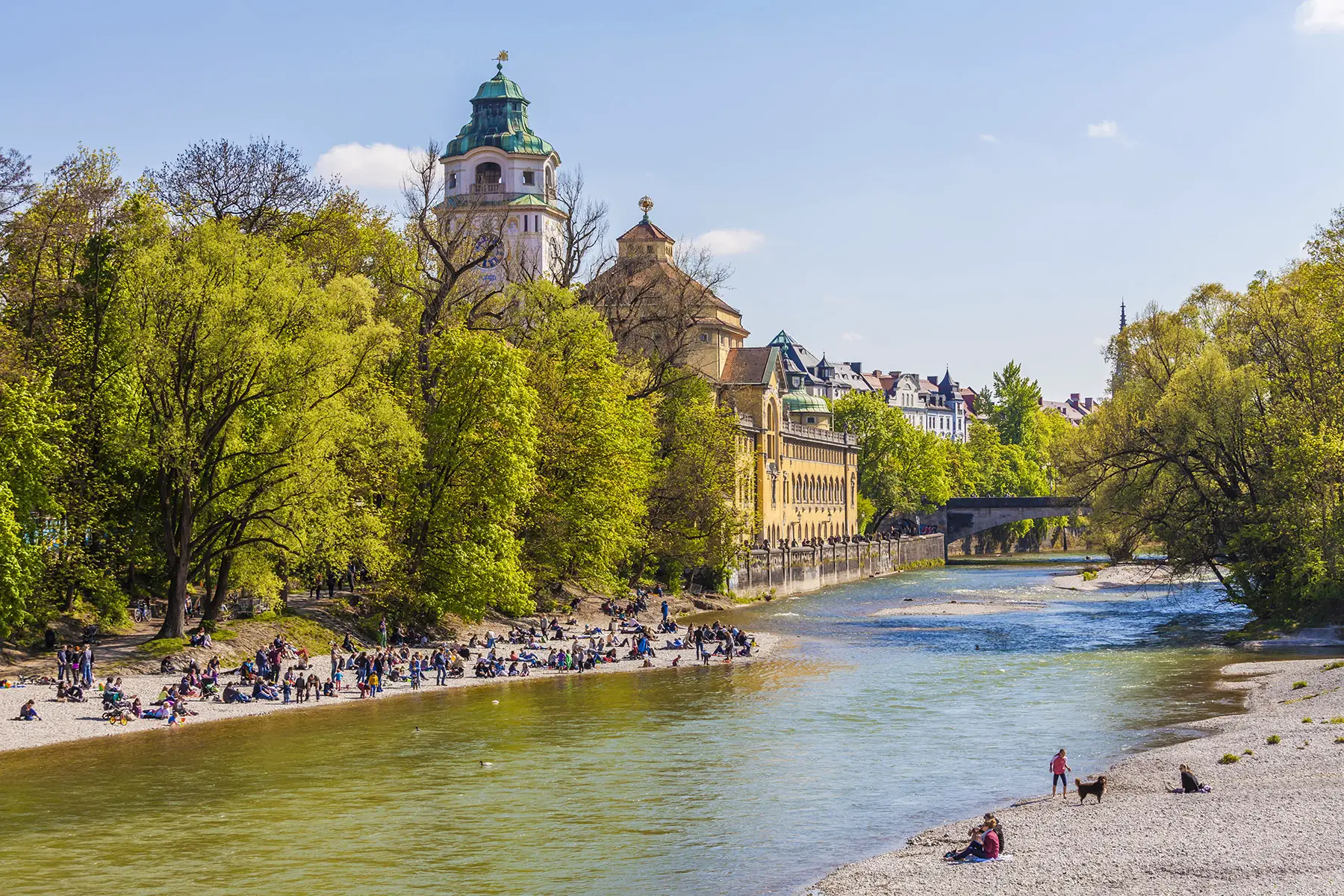
Over 28% of Munich’s population is foreign-born, and the city is home to people from 191 countries. The service sector accounts for 78% of jobs. Expats can also expect to find jobs in manufacturing, particularly automobiles, electronics, and the advanced technology industry.
There’s a downside, of course: real estate prices and the cost of living. Munich is the most expensive German city for expats in the 2022 ECA Cost of Living Report.
Frankfurt
The fifth-largest German city doubles up as the business and financial hub. Nicknamed Mainhattan because of its location on the river Main, Frankfurt is a city of opportunities. Besides jobs in the financial sector, the city offers prospects in IT, logistics, media, and research.
Nearly a third of Frankfurt residents are foreigners (link in German). The multicultural, multilingual, and open-minded city offers expats a fantastic lifestyle and a rich social life.
Germany: facts and figures
- Climate: Temperate
- Official languages: German. Minority and regional languages include Turkish, Sorbian, and North Frisian.
- Religions: Christian 53% (Roman Catholic 27.1%, Protestant 24.9%, Other 1%), Muslim 5.2%, Orthodox 2%, other 1%, none 38.8% (2019 est.)
- President: Frank-Walter Steinmeier (since 2017)
- Chancellor: Olaf Scholz (since 2021)
- Currency: Euro
- Population: 84.3 million
- Emergency number: 112
Key historical dates
Germany occupies a dominant place in European and world history. The German state as it exists today was only born in 1871 when Otto von Bismarck – Germany’s first Chancellor – presided over the unification of the country.
However, the name Germany has long described the loose, fluid polity of Germanic-speaking peoples over much of western Europe for millennia.
Modern Germany by the year
Here are some key dates in modern German history.
- 1871 – The German Empire is formed. Otto von Bismarck becomes its first chancellor.
- 1914 – Outbreak of World War I, with the German Empire among the Central Powers.
- 1918 – End of World War I. The Weimar Republic is set up as a representative democracy. The right to vote extends to all citizens over 20 years old (with some exceptions).
- 1919 – First democratic national elections in Germany.
- 1933 – Adolf Hitler becomes chancellor and announces the Third Reich the following year.
- 1939 – World War II is triggered by the German invasion of Poland.
- 1945 – End of World War II, Germany is defeated and split into four occupation zones.
- 1949 – Two German nations are born: the Federal Republic of Germany (informally West Germany), and the German Democratic Republic (or East Germany).
- 1950s – Period of rapid economic growth in West Germany. Thanks to the Wirtschaftswunder (economic miracle), the country becomes a global industrial leader.
- 1955 – Cold War alliances firm up. West Germany becomes a part of NATO, East Germany joins the Warsaw Pact.
- 1957 – West Germany signs the Treaty of Rome with five other nations to create the European Economic Community (EEC) or the Common Market.
- 1961 – The Berlin Wall is constructed.
- 1989 – Fall of the Berlin Wall.
- 1990 – East Germany merges into the Federal Republic.
- 2002 – The Euro replaces the German Deutsche Mark.
- 2005 – Angela Merkel becomes chancellor, the first woman to hold the post.
- 2009 onwards – Eurozone crisis, a multi-year financial debt crisis that affects several EU states.
- 2014 – Germany adopts its first ever minimum wage, with an hourly rate of €8.50.
- 2017 – Parliament legalizes same-sex marriage.
- 2021 – Olaf Scholz succeeds Merkel as chancellor.
Economy and living standards in Germany
As a highly developed country, Germany has one of the strongest economies in the world. An industrial and trading base make it the fourth-largest worldwide in terms of nominal GDP (around $4.26 trillion per year). It is also the largest economy in the European Union (EU). In terms of GDP per capita, Germany ranks 17th according to 2021 statistics with a figure of $51,204.
Germany outperforms the OECD average in jobs, work-life balance, education, environmental quality, safety and life satisfaction. The average household net-adjusted annual disposable income per capita is $38,971, higher than the OECD average of $30,490.
In terms of living expenses, German households spent an average of €2,623 per month in 2022. Housing and energy accounted for 37% of this total. The OECD predicts that the German economy will grow by 1.3% in 2024 in terms of GDP growth but the overall balance will be -1% when spending is accounted for.
14.7% of the German population is at risk of poverty and just over one-fifth (20.9%) is at risk of poverty or social exclusion. The poverty threshold in Germany is currently €15,000.
People and society in Germany
There are just over 84.3 million people living in Germany (2023). Population growth in Germany has been fairly steady in recent years. Over 16% were born overseas and more than one-quarter of the population has a migrant background. The biggest immigrant populations (2022) in Germany are from Turkey (1.49 million), Ukraine (1.16 million), Syria (923,805), and Romania (883,670).
Standard High German (Standardhochdeutsch) is the country’s official language. It is used in formal communication and between speakers of different dialects. Some researchers count as many as 250 different dialects, although these are generally classified into 16 groups.
In addition, recognized minority languages include Romani, Danish, North Frisian, Saterland Frisian, Upper Sorbian, and Lower Sorbian. Between 0.08% and 0.1% of the population speak each of these minority languages. Commonly spoken immigrant languages include Turkish (2%) and Arabic (1%).
German society
Although rooted in conservative Christian values, Germans are characterized by liberal, progressive, and inclusive attitudes. Family and the community are both highly valued. Germans are also reputed for their sense of order and respect for rules. Expats often come up against German punctuality: an appointment is fixed at both parties’ convenience and delays are frowned upon.

German society places a strong emphasis on a culture of remembrance (Erinnerungskultur). The term refers to accepting and learning from the nation’s history, including World War II and reunification. Consequently, social solidarity and respect for diversity remain deep-rooted values. People respect hierarchy in the workplace and professional interactions tend to be quite formal.
Despite stereotypes about the German sense of humor (or lack of), expats will generally find people there a friendly and fun-loving bunch who know how to party.
German lifestyle and culture
From the Holy Roman Empire to the Reformation and Romanticism, German culture has shaped Europe for over a thousand years. The historian Hagen Schulze wrote that, unlike France and England, Germany’s heroes were not military leaders or princes but poets and philosophers. Perhaps fittingly, then, Germany is often called the land of poets and thinkers (Das Land der Dichter und Denker). Indeed, the German cultural tradition extends beyond modern political boundaries. It includes Czech novelist Franz Kafka, Austrian composer Gustav Mahler, and the Romanian poet Paul Celan.
Things to do in Germany
With strong government support for the arts, Germany continues to enjoy a vibrant cultural scene today. Expats all across the country can expect to enjoy a wealth of cultural facilities and activities. The country is home to over 6,000 museums, more than 10,000 festivals, and thousands of theatres, galleries, and cinemas.
Munich’s Oktoberfest is probably the most famous German festival while Berlin hosts a big annual film festival (Berlinale) and has a vibrant music scene and nightlife. Expats can find plenty of cinemas showing English-language films. There are also plenty of great places to visit if you’re looking to get away for a day or two, including some lovely picturesque small towns and kid-friendly venues.
Finally, Germany’s reputation as an international sporting powerhouse means there’s no shortage of sports to watch or take part in. Football (Fußball) is the most popular, of course, but other popular activities include tennis, handball, winter sports, and, of course, motorsports. Speed freaks can find plenty of ways to get their adrenaline hit in the home of das auto.
Food and drink in Germany
If Oktoberfest is any indication, German cuisine is all sausages and beer. But Germany brings much more to the table. And we aren’t just talking döner kebab.

Bread is pretty much a sub-cuisine of its own. UNESCO made German bread an intangible cultural heritage in 2014 and there are over 3,000 types of this foodstuff across the country.
From north to south, German cuisine is built around the concept of seasonality. So, you could be served Grünkohl (kale stew) in the winter and rote Grütze (red berry sauce) in the summer. Expats with an expense account will be able to live it up at the 330 Michelin-star restaurants. Or you could try your hand at making some of the top 10 German foods.
Of course, Germany raises the bar when it comes to beer. You’d have to live in Germany for 20 years to try all 7,000 varieties. You can enjoy one almost anywhere, from a bar in Berlin to corner stores in Cologne. But Germany also has a strong wine culture spread across 13 regions, and you’re probably already well acquainted with Jägermeister.
Politics, government, and administration in Germany
Germany is structured as a federal state and a representative democracy. German basic law stipulates that all government powers stem from the people. These powers are assigned to national and state parliaments for the duration of a fixed legislative term.
Nationally, two chambers exercise legislative power: the Bundestag or federal parliament, and the Bundesrat, representing the 16 states (Länder).
The official head of state is a largely ceremonial president. Frank-Walter Steinmeier, previously foreign affairs minister, has been president since 2017. German presidents may serve up to two five-year terms.
The Bundestag elects the federal Chancellor, who serves as the head of government.
In 2021, former finance minister Olaf Scholz was elected chancellor. He replaced Angela Merkel, the longest-serving chancellor since unification.
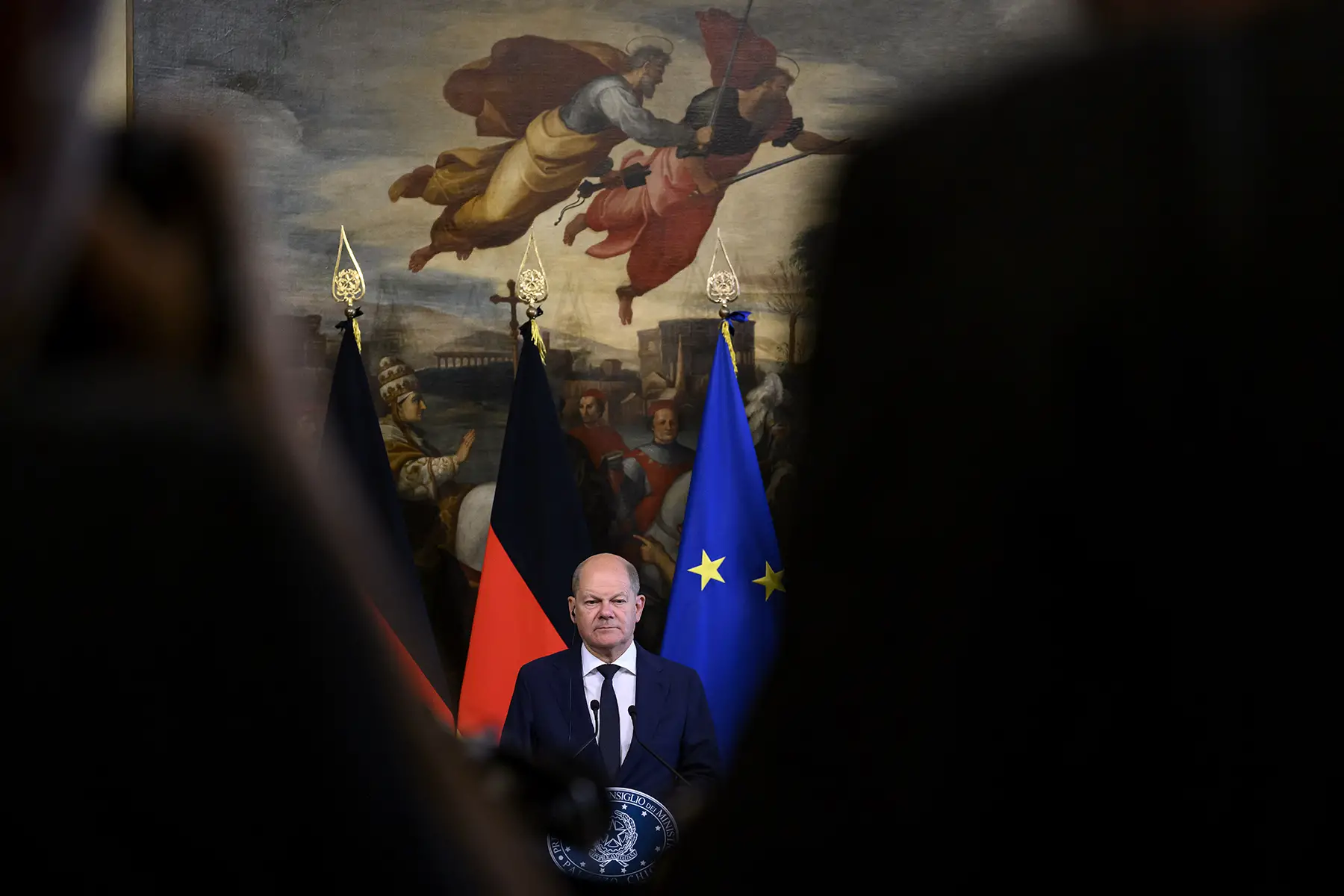
Germany holds four different types of elections: parliamentary, state, municipal, and European. All German citizens older than 18 years of age may vote in all of these. In some states, you can vote when you turn 16.
Non-German nationals cannot vote. However, EU citizens may vote in municipal/local (Kommunalwahl) and European (Europawahl) elections.
Rights and freedoms in Germany
Germany is one of the world’s strongest democracies. The country ranks 14th globally on the Economic Intelligence Unit (EIU) 2022 Democracy Index. It is also 18th on the 2022 Human Freedom Index. Safeguards written into the postwar German Constitution, adopted by the unified nation in 1990, prevent a return to authoritarian rule.
Political rights and civil liberties are largely assured both in law and practice. Germany has a global freedom score of 94 out of 100, according to the US non-profit Freedom House. Basic law enshrines human dignity along with inviolable and inalienable human rights. By law, the country is obliged to help protect human dignity and fundamental freedoms around the world.
Similarly, the German constitution guarantees freedom of the press and of expression. Germany placed 21st out of 180 countries on the 2023 Reporters Without Borders press freedom index.
Germany is one of the world’s most liberal countries in terms of social freedoms. Cologne ranks as the world’s most sexually liberal city and Berlin comes fifth, according to Lust Magazine.
Women’s rights in Germany
Equal rights for women are enshrined in German law. But in practice, that goal is some distance away. Women still face inequalities in many spheres. Germany ranks 11th out of EU countries on the 2022 Gender Equality Index. However, its position of 10th globally on the World Economic Forum (WEF) annual Global Gender Gap Report (2022) is better.
Sexual and domestic violence against women remains a critical issue. About 22% of German women have faced lifetime physical and/or sexual violence over their lifetime, according to UN data.
LGBT+ rights in Germany
Homosexual behavior was decriminalized in East Germany in 1968, and in West Germany in 1969. Same-sex marriage was legalized in unified Germany in 2017. Same-sex couples enjoy full marital and adoption rights. However, we can again see that Germany still has a way to go when it comes to LGBT+ rights. It ranks 15th out of 49 countries on the 2023 ILGA-Europe Rainbow Map with gaps including lack of anti-discrimination measures when it comes to sexuality and gender identity.

As of 2011, it has been legal to change your gender in Germany. You can now indicate your gender as other (divers) on official documents such as driving licenses.
Crime and policing in Germany
The crime rate in Germany is similar to the overall EU average. According to EU statistics, there were around 1,400 crimes of robbery, burglary, and theft per 100,000 people in Germany in 2021. Germany ranks 100th out of 142 countries (1st being the worst for crime) on the 2023 Numbeo Crime Index. It has a lower crime score than countries such as France, the US, and the UK but a higher score than Spain, the Netherlands, and Japan.
The 16 states (Länder) are responsible for law enforcement. Consequently, services available may vary depending on where you are. Typically, the local and regional police (die Polizei) in Germany comprise two groups: the Kriminalpolizei (or Kripo), which handles serious crimes such as murder, assault, rape, or grand theft; and the Schutzpolizei (Schupo), which deals with traffic offences and more minor disturbances. Look up the details of your local police force online. You can also look for emergency service contact details in the event of a serious incident.
Most crimes committed in Germany are minor to moderately serious property offences, according to the 2019 Criminal Justice in Germany report (PDF). Theft, street crime, and fraud are the most commonly recorded criminal offences.
Health, welfare, and social security in Germany
German healthcare is of good quality and places highly in international comparisons. The country ranks eighth out of 195 countries on the Global Healthcare Security Index. The health system scores particularly highly for disease detection, compliance with international norms and the risk environment.
Germany spends 12.8% of its GDP on healthcare, the highest in the EU (2020).
Life expectancy in Germany is 81 years, above the EU average of 80 and the global average of 71 (World Bank, 2021). Average life expectancy is higher for females (83.4) than for males (78.5) in Germany. Although the COVID-19 pandemic affected health and healthcare services in Germany, it wasn’t as severe as in most other EU countries.
Healthcare in Germany
Germany has a dual public-private healthcare system. It is the oldest in Europe and dates to the 1880s. Healthcare in Germany is funded by statutory insurance contributions, ensuring free healthcare for all residents. Public healthcare includes GP services, hospital visits, emergency treatment, standard dental treatment, some mental healthcare, free vaccinations, and access to some women’s healthcare and sexual healthcare services.
While its medical staff and facilities are considered among the very best in the world, the system has its limitations. As in other areas, the German health sector lags in digital delivery. About 23% of German adults report having a teleconsultation during the pandemic, compared to 45% on average across 22 OECD countries.
Expat health insurance in Germany
If you live or work in Germany, you must register at your local town hall (Einwohnermeldeamt). After that you will receive a German social insurance number (Sozialversicherungsnummer) and will need to make national insurance contributions. You will then be entitled to state-run healthcare, in addition to various other benefits such as the German state pension, just like German nationals.
Non-residents typically incur higher German healthcare costs than residents. For newcomers and digital nomads, health insurance from these international providers can offer protection against unexpected medical emergencies in Germany:
You can use these policies to bridge coverage gaps after your move and during your stay, but if you plan to live in Germany long-term, you may need to subscribe to a health insurance plan with a regulated local provider.
The PVK maintains a full list of private German health insurance companies.
Education in Germany
The German education system is structured differently from many other countries, which can make it difficult to understand for expats. For example, each state (Länd) runs its own education program and there are five different types of German secondary school. Compulsory schooling in Germany generally lasts from age six to 15, although most students continue until the age of 18.
German public primary and secondary schools are free for expat children. Indeed, qualified students can study right up to university level, regardless of their families’ financial status. The catch? Most classes are held in German. State schools offer additional language support to expat children who don’t have a native command of German. However, students who find the language difficult may want to consider a fee-paying private international school.
Overall, the system scores highly on international measures. The triennial OECD/PISA survey (2018, PDF) rated German students above the OECD average in reading (498 score points), mathematics (500), and science (503). The survey assesses 15-year-old students on the knowledge and skills they need for full participation in society. The result is that Germany has one of the highest-educated labor forces in the OECD. Germany ranks 16th out of 41 countries for education in the OECD Better Life rankings. 86% of German adults have completed upper secondary education, above the OECD average of 79%.
However, these high standards don’t necessarily reach students equitably. The gap in reading performance between advantaged and disadvantaged students in Germany is larger than in the rest of the OECD. Moreover, the 25% most socio-economically advantaged students outperformed the 25% most disadvantaged students by 113 points. The gap is about 24 points greater than the OECD average of 89 points.
Work and business in Germany
You can work in Germany if you are from an EU or European Free Trade Association (EFTA) country or if you have a German work visa. With a strong economy and many international companies based in the country, Germany is a good place for expats to look for work.
Germany has one of the lowest unemployment rates in the EU at 2.9% (April 2023). This is well below the EU average of 6%. Its strongest sectors include automobile manufacturing, pharmaceuticals, and electronics. Science, technology, engineering, and mathematics (STEM) employees are in short supply in certain parts of the country.
Work culture in Germany tends to be fairly formal and organized, based on clear company structures and long-term planning. However, cultures can vary greatly across German businesses.
An alternative to taking up employment in Germany is setting up your own business. There are many self-employed business owners and freelancers in Germany, although the rate of self-employment in the country is lower than average. According to 2021 World Bank figures, 8.3% of the German workforce is self-employed compared to the EU average of 14.4% and the global average of 46.6%. You can choose from a range of different legal business structures but will need to make sure that you carry out the necessary business administration procedures, for example, meeting German tax requirements.
Environment and climate in Germany
Germany’s temperate climate means extremes are rare. That changes depending on where you live, of course. However, expect warm – but not always sunny – summers (averaging around 23–26°C) and cold winters (0°C or sometimes lower).
The different types of currents make for an unstable climate. Thanks to global warming, the elements are now less predictable than they were. So, you could have snow in April and freak rainstorms at any time of the year.

The north – Bremen, Hamburg, and Kiel – is slightly milder. The region also receives more rain and is windier. Meanwhile, snowfall is common in Bavaria and the east. If you’re lucky enough to live here, the German Alps offer fantastic skiing and winter sports.
Germany is rather densely populated, with around 230 inhabitants per square meter. About 77% of the population lives in cities and urban areas. On the other hand, only 15% live in villages with fewer than 5,000 inhabitants.
Germany has been fairly proactive in terms of environmental policies, according to OECD reports. It has had a National Strategy for Sustainable Development in place since 2002. This has helped the country get to 13th on the 2022 Environmental Performance Index. Larger cities such as Berlin and Hamburg score well on the Air Quality Index. However, Germany ranks 103rd in terms of biodiversity and 112th for annual rainfall.
Great places to visit in Germany
Each year, about 37 million tourists come to Germany. The Black Forest, Berlin, and Oktoberfest are major draws. But there are many attractions and great places to visit all over the country.
For expats living in Germany, there are plenty of ways to glam up the ’gram.
Four ways to live the tourist dream
- Visit a castle: Germany’s feudal history means there’s usually a castle or stately home within cycling distance of your home. Schloss Neuschwanstein in the village of Hohenschwangau is thought to have inspired Disney’s Sleeping Beauty Castle. Ludwig II commissioned the lavish palace, one of many architectural confections in Bavaria, and it remains one of Germany’s most popular tourist destinations.
- Commune with nature: Around one-third of Germany is woodland so you’ll find plenty of opportunity for a spot of forest bathing. Or camping, hiking, mountain biking, swimming, or birdwatching. Dramatic vistas and energizing workouts are all within easy reach.
- Strip off at the sauna: Germans have no qualms about letting it all hang out. Quite literally. A visit to the sauna offers ample proof. Naked is the norm – unlike at the beach, towels are for sitting on. There are more than 350 spas and resort towns (hint: many have Bad or bath in their name).
- Immerse yourself in history: The lessons of the past are on living display in Germany across thousands of museums. Activities for history and culture buffs abound. Feeling a spot of ostalgie? Berlin’s interactive DDR Museum will bring the divided decades to life. Nuts about Neanderthals? There’s an experience for that, too – right where it all began. Plus, of course, there’s World War II. Take your pick.
- Take to the road: This being Germany, auto-themed activities abound. The Porsche Museum in Stuttgart is one of several brand-led experiences. Or get behind the wheel at the Nürburgring, which has been thrilling racing lovers since 1927. If a gentle tour is more your thing, check out Berlin’s Trabi Safari.
Public holidays in Germany
Everybody gets nine official public holidays in Germany annually. Factor in regional holidays, and you could have up to 13 days off each year.
Most national holidays tend to coincide with Christian observances. Therefore, there are two days’ holiday each for Easter, Pentecost, and Christmas. Both New Year’s Eve and New Year’s Day are also holidays.
National holidays include the Day of German Unity on 3 October, which commemorates German reunification in 1990.
The states also decide on school holidays in Germany. Each region has annual holidays for autumn, Christmas, Easter, and summer. These typically span one to three weeks. The exception is summer, when schools break for six weeks. In addition, many schools also have a winter holiday in February. Some states add a further week or two for Pentecost around May/June.
Germans: myth-busting
Thinking about moving to Germany? Then, you’re probably wondering if you’ll be stuck plugging away at life joylessly, racing to be on time to social events while consigning yourself to never hearing a single joke again.
However, you’d be wrong – for the most part.
Take a look at some of the most common stereotypes about Germany.
Germans have no sense of humor
Since Mark Twain’s days, German jokes have been no laughing matter. The old cliché couldn’t be further from the truth. Satire and slapstick are integral to German cabaret. The former has been a way of sending up politicians, the latter to please the cheap seats. Nowadays, it’s also easy enough to find sitcoms and stand-up comics, too. Henning Wehn is one of the more well-known German comics outside of the country, although he has lived in the UK for over 20 years.
Top tips for expats? Find old reruns of the TV show, Der Tatortreiniger, where the central character must clean up a crime scene every episode. This was adapted into a popular UK comedy series The Cleaner. Or head to the Cologne Comedy Festival (in German).
Germans are hard-working
This statement is only partly true. It is, of course, without doubt that Germany is a very industrious nation with a strong output, high employment, a productive and organized workforce, and a focused work culture.
However, it may surprise many to learn that Germans actually work fewer hours than most other countries. This is according to the OECD, which placed them bottom out of 43 nations in terms of hours worked. Germany clocked up an average of 1,349 hours worked per worker throughout the year in 2021. This was below the EU average (1,566) and the OECD average (1,716) and a long way short of the leading nation, Mexico (2,128).
Germans are tall, blond, and blue-eyed
The image of tall, fierce Teutons with red hair and fierce blue eyes has endured throughout history. The Roman historian Tacitus wrote the Germans did not marry foreigners and were unlike any other nation. According to author Christopher Krebs, the rediscovery of his work in the 15th century led to the rise of German nationalism and provided an image that has persisted through the years.
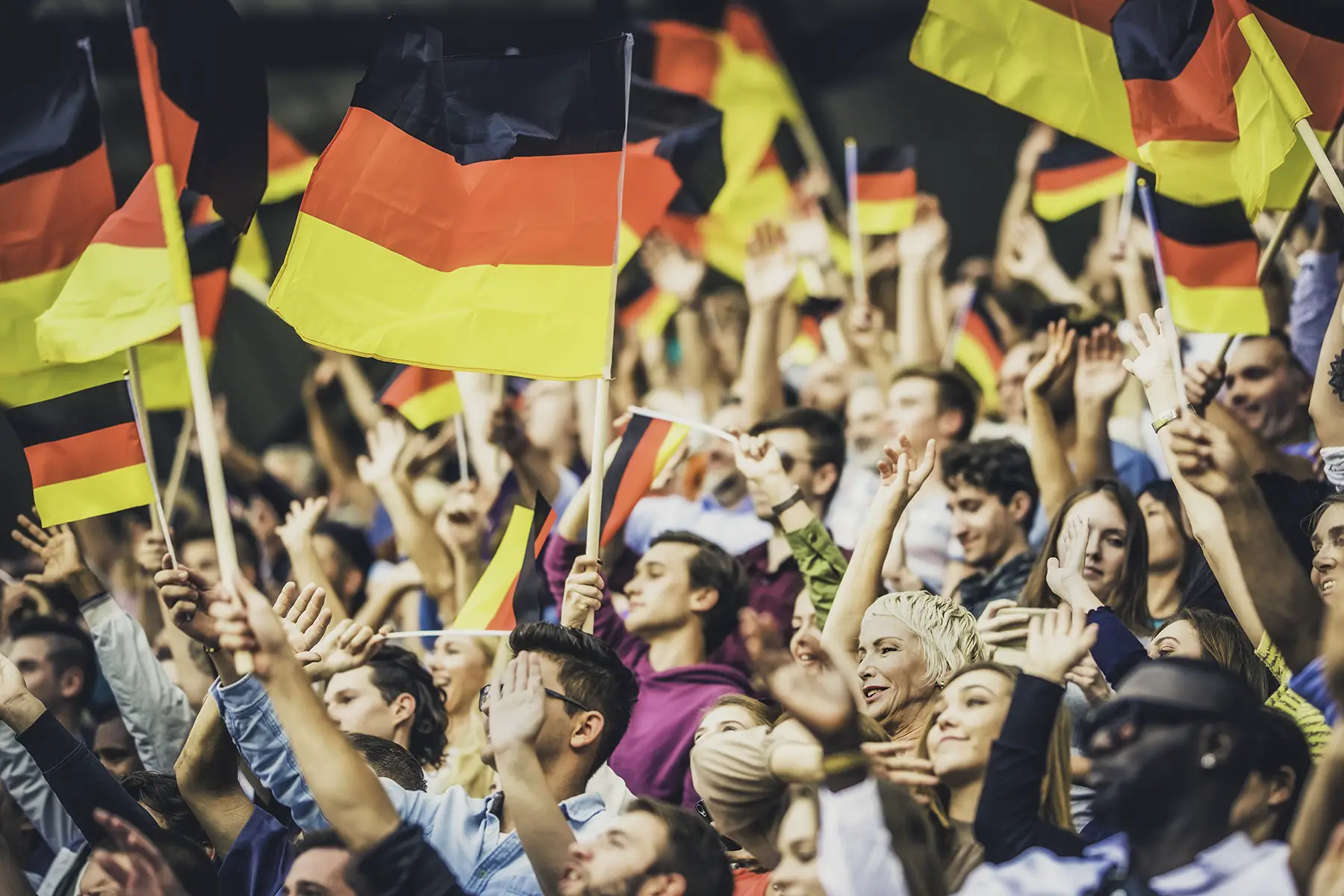
However, the image has been greatly reconsidered over the past century – not least by German historians. German nationals today are a diverse mix consisting of every hair, eye, and skin color.
